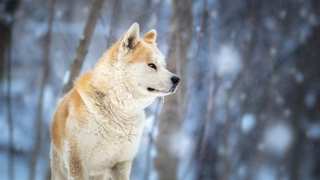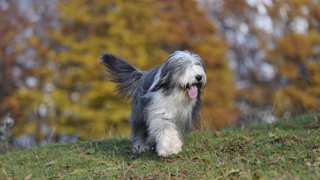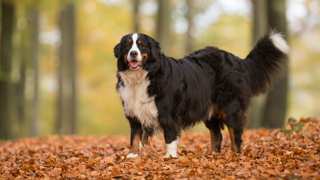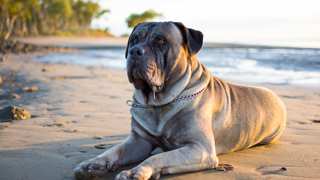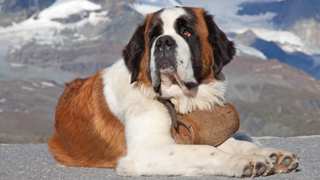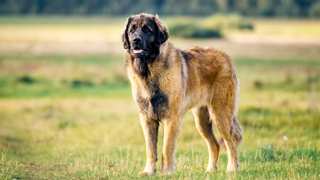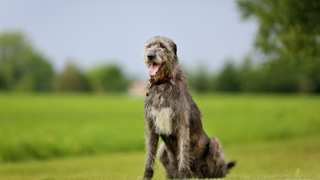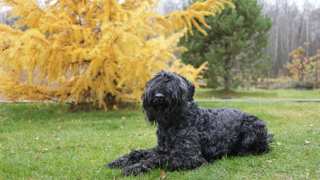The Newfoundland dog diet will need to include animal proteins and carbohydrates for energy, vitamins and minerals for digestive and immune health, and omega fatty acids for coat and skin wellness. This means the best Newfoundland food is premium dry kibble, as it has balanced portions of the above-listed nutrients--plus it lowers the chance of the dog becoming overweight (a common issue with this breed).
Specifically how much does a Newfoundland eat? Adult Newfoundland dog food portions, depending on the dog's size, age, and activity level, are about 4½ cups of premium kibble per day, divided into two meals. Newfoundland puppy food portions are a bit less: again depending on age, about 3½ cups per day, divided into three meals (not two) until seven months of age.
For more info on feeding a Newfoundland puppy through maturity, see this Newfoundland puppy feeding guide:
Dog AgeDog WeightFood TypeAmountFrequency2½ Months15 lbsDry (Puppy formula)0.5 cups3x/day3½ Months30 lbsDry0.75 cups3x/day5 Months50 lbsDry1 cup3x/day7 Months75 lbsDry1.25 cups3x/day10 months100 lbsDry* (Puppy/Adult)2 cups2x/day12 Months+120 lbsDry (Adult formula)2.25 cups2x/day*--Around this time, transition to adult food by first mixing in a bit of adult formula with the puppy formula. Over the course of a week, with each meal add a little more adult formula to the mixture, until the dog is eating it entirely.
Try if possible to stick to the above-listed Newfie food portions. These dogs have a high tendency for obesity, and will quickly become overweight if constantly overfed (and under-exercised)--and a fat Newfoundland dog will have numerous health problems, and an even shorter lifespan than its already brief one (8-10 years). You can help control your Newfie's weight by having consistent feeding and exercise schedules, by not feeding the dog table scraps, and by not leaving food in the dog's bowl all the time.
If you're worried your Newfoundland is overweight, give the dog this simple test: run a hand along its side, and if you can't feel any ribs, it's diet time--meaning less food and more exercise.

